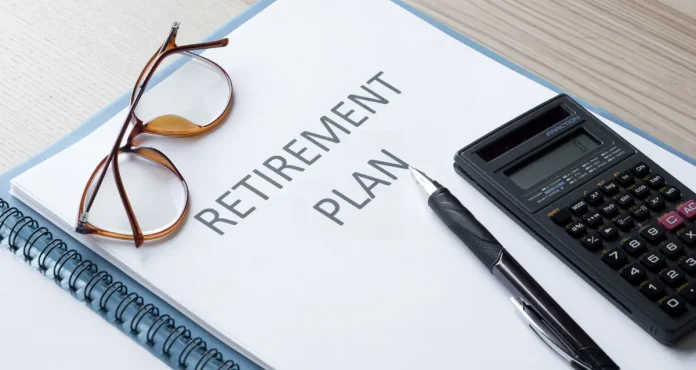
Are you saving enough for your retirement? Do you have a clear plan in place to achieve your post-retirement goals? These are essential questions that many individuals fail to ask themselves early on in their careers. Retirement planning is crucial to ensure financial security and a comfortable lifestyle during your golden years. It allows you to set aside funds that will support you once your regular income stops.
The Indian retirement age is typically between 58 and 60 years old, but many people are considering early retirement nowadays. The decision to retire should be made after carefully evaluating various factors such as your financial situation and personal goals. Before we discuss the 7 key questions, let us understand about term insurance, which can play an important role in your retirement planning.
Retirement Planning and Term Life Insurance
Ever wondered how your savings can earn interest while safeguarding your family’s future? Retirement planning is a crucial step towards financial security, and taking best-term life insurance plays a vital role in this process. Term insurance provides a safety net for your loved ones in the event of your untimely demise, ensuring their financial well-being even when you are no longer there. But retirement planning involves more than just purchasing term life insurance. You must carefully consider the essential questions to ensure a comfortable retirement. Use a term plan calculator to make the required calculations.
When to Retire?
Determining when to retire is a critical step in the retirement planning process. It involves assessing your financial stability and the milestones you want to achieve before retiring. Ask yourself:
1) Financial Situation: Consider your current financial position. Will your savings be sufficient to support you throughout your retirement? Calculate the amount of money you will need based on your expected expenses and make sure you have a solid plan in place.
2) Assess Your Goals: Take into account the personal goals you want to achieve before retiring, such as funding your child’s education or buying a new house. Ensure that you have enough time to fulfill these aspirations before leaving the workforce.
How Much to Save?
Saving for retirement is a long-term commitment, and the amount you need to save depends on several factors. The earlier you start planning, the less you will need to save each month. Conversely, if you delay your retirement planning, you will have to contribute more to catch up.
When determining how much to save, consider the income you wish to replicate during retirement. Financial advisors generally recommend aiming for a retirement fund that can provide at least 70-80% of your pre-retirement income.

How Much Will You Need to Retire?
The amount needed for retirement varies from person to person based on their unique circumstances and goals. Consider your current expenses, future needs, and any plans you have for after retirement.
Take into account both essential expenses like housing and daily living costs as well as discretionary expenses such as travel or hobbies. Ensure that you have enough in your retirement corpus to cover emergencies and unforeseen events. To determine the corpus required for your retirement, use a reliable retirement planning calculator that takes into account inflation and investment returns.
Where to Invest for Retirement?
Once you have determined how much you need to save for retirement, the next step is to choose the right investment options. Consider your risk tolerance and preferences when deciding where to invest.
If you prefer low-risk investments, options like Public Provident Fund (PPF), Employees Provident Fund (EPF), and Debt Funds can provide stable returns. On the other hand, if you are willing to take on more risk for potentially higher returns, investing in market-linked plans like National Pension Scheme (NPS), Unit Linked Insurance Plans (ULIPs), and Mutual Funds might be suitable.
Will the Pension Be Taxable?
The taxability of your pension income depends on the investment option you choose. Immediate annuities purchased with a lump sum amount are generally taxable. However, long-term ULIP plans and deferred annuity plans may offer better tax benefits.
For example, ULIPs allow tax-free partial withdrawals and systematic withdrawal options post-retirement, providing a tax-efficient source of income.
Is NPS Enough to Retire Safe?
The National Pension Scheme (NPS) is a popular retirement investment option in India. It offers market-linked returns and the flexibility to choose your investment portfolio. However, relying solely on NPS for retirement may not be sufficient.
To determine if your NPS investment is enough, consider factors such as the corpus you expect to accumulate, inflation rates, and your desired lifestyle during retirement. It is essential to have a diversified investment portfolio that includes various asset classes to mitigate risk and maximize returns.
What Is the Right Age to Begin Retirement Investment?
The earlier you start investing for retirement, the better off you will be in the long run. Starting early allows you to take advantage of compounding returns and gives you more time to reach your financial goals.
Even if retirement seems far away, it is never too early to begin planning and saving for it. Start by setting aside a small portion of your income each month and gradually increase your contributions as your income grows.
Conclusion
Retirement planning is a crucial step towards achieving financial security and a comfortable lifestyle during your golden years. By asking yourself these essential questions, evaluating your goals, and considering various investment options, you can create a solid retirement plan.
FURTHER READING









